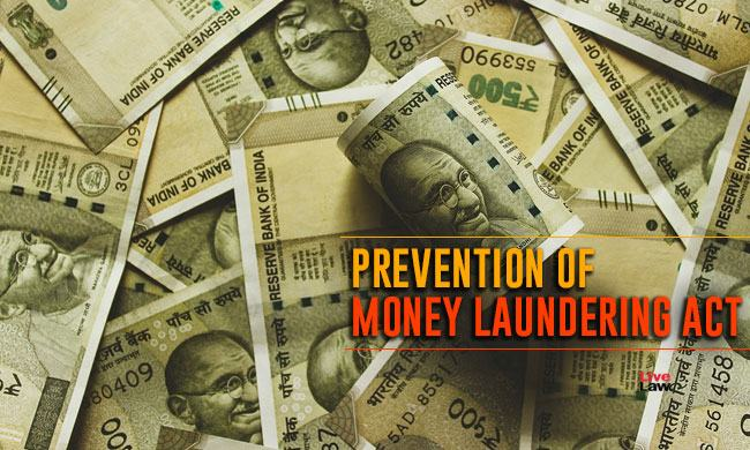The Never-Ending Fight Against Money Laundering
Poorvi Aswani Bhardwaj
21 March 2022 10:09 AM IST

Money laundering, Terrorist Financing and other related financial crimes sabotage the stability and integrity of the financial sector as well as the overall economy of a nation. This, in turn disrupts the implementation of law and order, governance as well as the flow of international capital.
Money laundering crimes being committed in one nation can have adverse and reverberating effects on the financial set up of other nations and may cause worldwide unfavorable impacts. Those jurisdictions that have feeble or incapable financial regulations are attractive for those planning to circumvent the law, in particular terrorism financiers and money launderers.
Since its inception in 1989, the Financial Action Task Force (FATF) has set standards for promoting efficacious implementation of measures for combating money laundering and other possible threats to the international financial market. In its early years of existence, the FATF had a restrictive focus towards the policy of its own members, but the focus began to change during the late 1990s when the FATF began encouraging the implementation of its standards in developing nations with large informal sectors, low level of technical ability and regulatory prowess where unregulated mechanisms have often been used for transferring money making it difficult to monitor and control unlawful financial behavior.
Stages of money laundering are referred as placement, layering and integration and the first step in the laundering offences is placing the money obtained through illicit means into a bank account by means including using a false identity, fake transaction, incorrect address, etc. The second stage is then how this money is layered by depositing in such accounts and once it is shifted by transferring to other accounts, it gets integrated which is the third and final stage to be used for buying certain goods or services, thus completing the cycle of laundered proceeds brought into the financial systems.
For this reason, banks and financial institutions have dedicated significant number of resources to anti money laundering (AML) compliances, in terms of both manpower as well as financial resources. Know Your Customer (KYC) procedures have offered strong AML checks to the banking sector than earlier. KYC enables banks to know and understand their customers by identifying and verifying their identities as well as their financial dealings.
Reserve Bank of India (RBI) in an instance of deficiencies in regulatory compliance, imposed a monetary penalty of Rs. 4 crores in 2019 on Bank of India for contravention of KYC/anti-money laundering directions by breaching stipulated transaction limits, delay in transferring unclaimed balances to Depositor Education and Awareness (DEA) Fund and delay in reporting fraud to RBI. This led to a fall in total income of the bank by 6.84% in financial year 2021 as compared to 2020.
From this stemmed the need to focus on enhanced 'Customer Due Diligence', wherein the customers are identified on the basis of personal data, principal address and the purpose of the business relationship as well as risks involved therein. Subsequently, the customer is then accepted as per the risk rating, whereby standard or simplified due diligence is carried out for normal or low risk customers and transactions, and enhanced due diligence is carried out for high- risk customers and transactions. The transactions are then monitored in order to ensure consistency between activities and see if some transactions are unexplainably complex or large with no particular economic purpose and inconsistent with the profile of the customer. Such transactions are then scrutinized to ascertain the sources of funds as well as any possible links with high-risk jurisdictions and possible proceeds of crime so that same can be reported to the Financial Intelligence unit.
Not just the financial sectors or DNFBPs, as individuals even a person having received part of an income which could be proceeds of crime can have legal consequences on such beneficiary and in such situations a number of celebrities, public figures, PEPs, have in the past faced investigations. Of late a number of high-profile celebrities in India and abroad have come under the scanner of law enforcement agencies for embezzlement of public funds and proceeds of crime. A former Home Minister of a State in India was in November 2021 named 'an important cog in the wheels', the primary beneficiary by the Enforcement Directorate of India in a money laundering case after a First Information Report (FIR) was registered against him by CBI for alleged corruption and bribery wherein he received illegal gratification in cash from various bar owners of Mumbai and then deposited the same with four Delhi based shell companies and this money was subsequently donated by these companies to a trust headed by the accused and his family. Another case doing rounds in Indian media is that of 'conman' who laundered around INR 200 crores by creating layered structure of proceeds of crime through firms in the name of his wife and purchased expensive gifts for various Bollywood celebrities to hide his illicit funds. For the same reason many of these celebrities have been summoned for questioning by the enforcement agency to ascertain their role in the case as they turn out to be beneficiaries of proceeds of crime.
However, the ignorance of various sectors on AML compliances and frameworks has worked as a loophole to benefit the money launderers. The overreliance on human scrutiny to spot money laundering and fragile cross-checking processes clearly indicates the need for the institutions to invest in better skills, processes and systems to get on top of the problem of money laundering.
Author: Poorvi Aswani Bhardwaj, Senior Associate, Century Maxim India. Views are personal.


